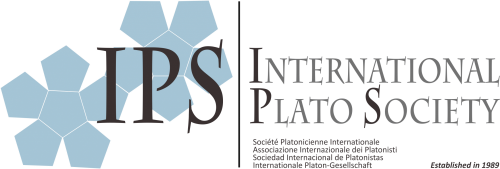XIV Symposium Platonicum – Online / Programme and link
INTERNATIONAL PLATO SOCIETY XIV SYMPOSIUM PLATONICUM Online Sessions (May 19-21, 2025) UNIVERSIDAD CARLOS III DE MADRID INSTITUTO SÉNECA Link: https://eu.bbcollab.com/guest/a56905789b044613bb59128a9dac667a Programme Monday, May 19th 11.00-12.00: Plenary Session: Chair: Luc Brisson Salomon Ofman: Theodorus' Mathematical Lesson (Theaetetus, 147c7-d6): A New Interpretation 12.00-12.40: Ordinary Session 1: Chair: Beatriz Bossi Diego García Rincón: Alteration and Indeterminacy in Plato’s Critique of Radical Flux (Theaetetus 182d1–183b5). 12.40-13.00: 20 min Break 13.00-13.40: Ordinary Session 2: Chair: Rodrigo Illarraga Rafael Moreno Gonzalez: La sabiduría del renacuajo. Semejanza, desemejanza y saber en el Teeteto de Platón 13.40-14.20: Ordinary Session 3: Chair: Zdenek Lenner Evan Keeling: Socrates’ Avowal of Knowledge: the case of the Theaetetus 14.20-15.30: Lunch Break 15.30-16.10: Thesis Dissertation 1: Chair: S.S. Meyer Jiseob Yoon: The Role of Law in Plato’s Cities (Supervisor: Melissa Lane) 16.10-16.50: Ordinary Session 4: Chair: Franco Trabattoni [...]







